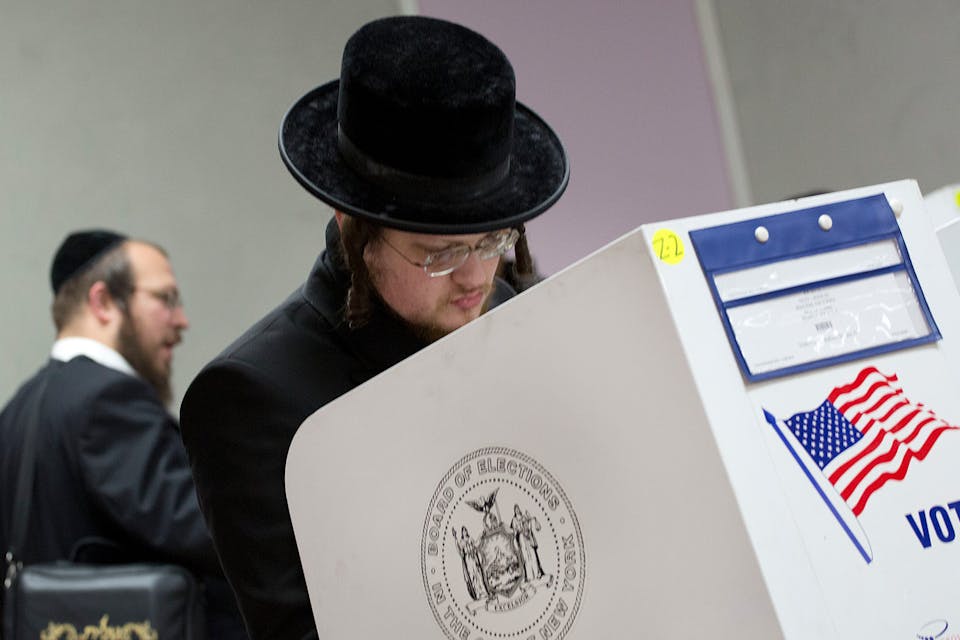
November 10, 2021
The End of the Orthodox Voting Bloc?
The New Jersey gubernatorial race suggests that increasing numbers of haredi Jews are now voting based on personal conviction rather than communal pragmatism.
Among the elections garnering national media attention last week was the New Jersey gubernatorial race, which pitted the incumbent Democrat Phil Murphy against the Republican challenger Jack Ciattarelli. The morning after the election, when votes were still being counted and it appeared that Murphy was set to win by the narrowest of margins, Dave Wasserman, a respected beltway analyst, tweeted:
Had the Lakewood Vaad endorsed Ciattarelli (R) instead of Murphy (D), we could be looking at a very different #NJGOV race right now.
For the uninitiated, Lakewood is a large ḥaredi (ultra-Orthodox) enclave in central New Jersey, and the Vaad (Hebrew for “council”) is a committee of prominent rabbis, businessmen, and lobbyists who serve as the community’s leadership and often endorse political candidates. And Wasserman’s tweet was not the outburst of a deranged anti-Semite, imagining a sinister cabal of rabbis and financiers pulling the strings of a statewide election, but a serious reflection on the influence of the Vaad on the voting patterns of Lakewood’s Jews. The Vaad endorsed Murphy, but, as Wasserman understood at the time, voters in Lakewood preferred Ciatterelli by a significant margin. In other words, Wasserman was implying, in all likelihood correctly, that even more Lakewood residents would have voted for Ciaterelli had the Vaad backed him, perhaps shifting the overall results.